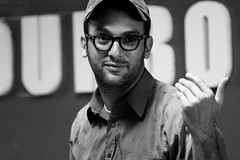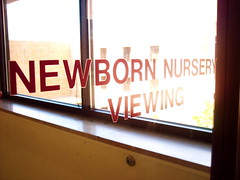
Last February, at a dinner for Silicone Valley luminaries, President Obama asked Steve Jobs what it would take for iPhones to be made in the USA. Jobs essentially told the president that was never going to happen.
Charles Duhigg and Keith Bradsher of the New York Times set out to explain why not. They interviewed “more than three dozen current and former Apple employees and contractors” as well as “economists, manufacturing experts, international trade specialists, technology analysts, academic researchers, employees at Apple’s suppliers, competitors and corporate partners, and government officials.”:
“Apple’s an example of why it’s so hard to create middle-class jobs in the U.S. now,” said Jared Bernstein, who until last year was an economic adviser to the White House.
“If it’s the pinnacle of capitalism, we should be worried.”
Apple executives say that going overseas, at this point, is their only option. One former executive described how the company relied upon a Chinese factory to revamp iPhone manufacturing just weeks before the device was due on shelves. Apple had redesigned the iPhone’s screen at the last minute, forcing an assembly line overhaul. New screens began arriving at the plant near midnight.
A foreman immediately roused 8,000 workers inside the company’s dormitories, according to the executive. Each employee was given a biscuit and a cup of tea, guided to a workstation and within half an hour started a 12-hour shift fitting glass screens into beveled frames. Within 96 hours, the plant was producing over 10,000 iPhones a day.
“The speed and flexibility is breathtaking,” the executive said. “There’s no American plant that can match that.”
Similar stories could be told about almost any electronics company — and outsourcing has also become common in hundreds of industries, including accounting, legal services, banking, auto manufacturing and pharmaceuticals.
Experts say cheap labor is only part of the reason Apple assembles iPhones in Asia. Even more appealing to Apple is the fact that the supply chains that sustain an iPhone factory are also based on Asia. In other words, if you want to make iPhones, it’s cheaper to be near the factories that make the iPhone screws, the iPhone gaskets, and so on. China has most of those subcomponent factories, and the infrastructure to get the screws to the iPhone factory on short notice. The U.S. doesn’t have that infrastructure anymore.
So, why are all these component factories in China? The three main reasons seem to be economies of scale, Chinese economic policy, and cheap, readily exploitable labor. Of course, Chinese labor is artificially cheap and “flexible” because the totalitarian government squelches workers’ attempts to organize.
The least convincing argument is the purported skill gap between Chinese and U.S. workers. “We shouldn’t be criticized for using Chinese workers,” a current Apple executive was quoted as saying. “The U.S. has stopped producing people with the skills we need.”
Duhigg and Bradsher make a convincing case that the U.S. isn’t training enough engineers. But does the skills argument work when it comes to lower-level assembly line employees at FoxConn, a company that is notorious for recruiting huge numbers of young workers from the countryside? Nobody is born knowing how to solder an iPhone component. FoxConn must provide on-the-job training to much of its workforce. Granted, the marginal cost of training additional workers is much smaller for a company that already has a workforce of 1 million.
After reading the story, it’s hard to muster much enthusiasm for retooling the U.S. economy to create jobs like those of iPhone-makers at FoxConn. The reporters focus on skilled workers, but the reality is that most of the work of making an iPhone has been broken down to its most menial elements and outsourced to low-paid, low-skill employees. This model is sustainable, for corporations if not for humans, because there is a huge pool of desperate workers who will happily take a FoxConn worker’s job. Relatively speaking, the U.S. has a population gap and a misery gap.
Maybe the solution for the U.S. is automation coupled with progressive taxation and income redistribution. Let the machines do the work while the people share more equally in the profits.
[Photo credit: JaredEarle, Creative Commons.]









